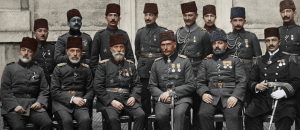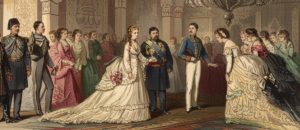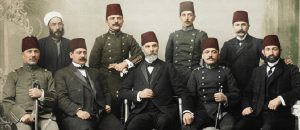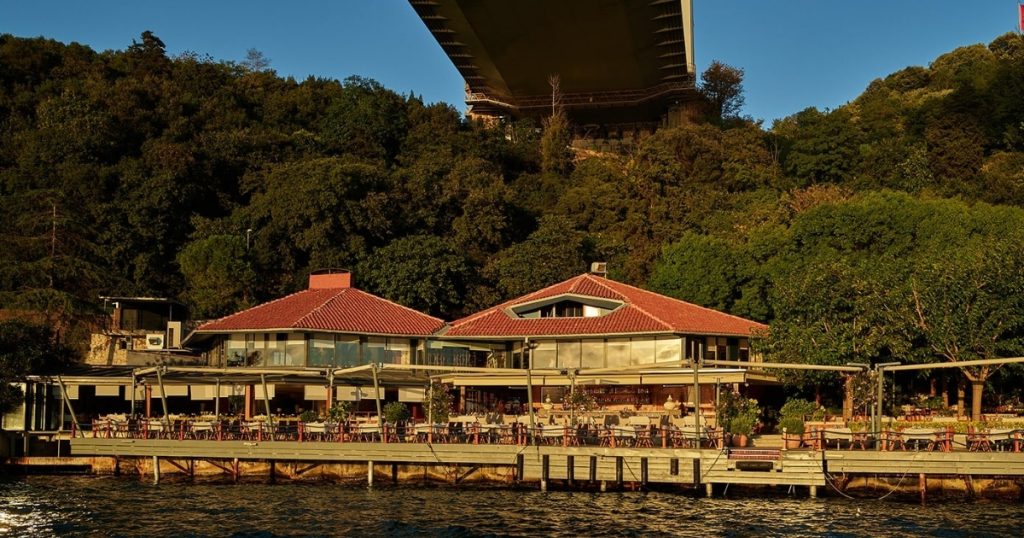The Bâb-ı Âli Raid of January 23, 1913, is much more than a mere government coup in Ottoman history. This was the moment when the military wing of the Committee of Union and Progress (İttihat ve Terakki Cemiyeti), led by Enver, Talat, and Cemal Pashas, completely seized power from both the Sultan’s palace and the traditional civil government, unconditionally taking control of the state. Following this bloody raid, the fate of the empire began to be determined not in the corridors of Dolmabahçe Palace nor in the negotiation rooms of the Bâb-ı Âli, but directly within the central committee of the Committee of Union and Progress (İttihat ve Terakki) and by the will of these “Three Pashas”. This event was the final and most radical step on the road leading to World War I, which would bring about the end of the Ottoman Empire.
The Last Straw: The Loss of Edirne
The event that triggered the Bâb-ı Âli Raid was the heavy defeat suffered in the First Balkan War, and specifically the occupation of Edirne, the former Ottoman capital, by the Bulgarian army. The news that the liberal government (sympathetic to the Freedom and Accord Party – Hürriyet ve İtilaf Fırkası) led by Kamil Pasha was preparing to accept a peace treaty that would surrender Edirne and a large part of Thrace to Bulgaria caused widespread outrage among the public and especially in Unionist circles (İttihatçı çevrelerde). For the Committee of Union and Progress, this was not just a loss of territory, but also the trampling of national honor. They decided they had no alternative but to use force to seize control of the administration in order to prevent what they viewed as “treason”.
January 23, 1913: The Bloody Coup at the Government Building
On the afternoon of January 23, 1913, Major Enver Bey (later Pasha), the most daring and charismatic military leader of the Committee of Union and Progress, arrived at the gates of the Bâb-ı Âli (the Grand Vizierate building) accompanied by Unionist militants (İttihatçı fedailer) such as Talat Bey and Yakup Cemil. The group forced its way inside, shouting slogans and inciting the public. During the scuffle that took place during the raid, Nâzım Pasha, the Minister of War (Harbiye Nazırı), was shot and killed by Enver Bey’s men. This was the first sign of how ruthless and bloody the coup would be.
Enver Bey aimed his weapon at Grand Vizier Kamil Pasha, forcing him to resign. Following Kamil Pasha’s resignation under duress and threat, Mahmud Şevket Pasha, who was under the control of the Committee of Union and Progress, was brought in as the new Grand Vizier. However, everyone knew that the real power no longer lay with the Grand Vizier, but with the “Three Pashas” behind the scenes.
The Dictatorship of the “Three Pashas”: The New Owners of Power
After the Bâb-ı Âli Raid, the administration of the Ottoman Empire was de facto taken over by a triumvirate, meaning a three-person administration. This trio consisted of the most powerful figures in the Committee of Union and Progress:
- Enver Pasha (Minister of War – Harbiye Nazırı): The absolute master of the army and war policies. With his admiration for Germany and his adventurous spirit, he was the key figure who brought the empire into World War I.
- Talat Pasha (Minister of Interior and Grand Vizier – Dahiliye Nazırı ve Sadrazam): The brains of the party’s civilian wing and its organization. The internal administration of the state, security, and population policies (including the Tehcir Law – Deportation Law) were under his control.
- Cemal Pasha (Minister of the Navy – Bahriye Nazırı): He was the administrator of the navy and Arab provinces such as Syria.
These three pashas managed the empire by dividing labor among themselves. Neither the Sultan Mehmed V Reşad, who had taken on a symbolic role, nor any government they did not appoint had any influence left. Power had been completely seized from the palace and traditional bureaucracy and moved to the party headquarters of the Committee of Union and Progress. This marked the beginning of the one-party regime and military dictatorship that would bring about the end of the Ottoman Empire.
Conclusion: The Road to War
The Bâb-ı Âli Raid is one of the most critical turning points in Ottoman history in terms of its consequences. Following this raid:
- Liberal opposition was completely suppressed, and multi-party politics effectively ended.
- Power passed into the hands of a radical group whose legitimacy derived not from the people or the Sultan, but directly from military force.
- The way was paved for Enver Pasha’s pro-German policies, leading to the empire’s entry into World War I on Germany’s side approximately a year and a half later.
In conclusion, the Bâb-ı Âli Raid was an irreversible step in which Enver, Talat, and Cemal Pashas forcibly seized power and took the destiny of the empire into their own hands. With this event, the power struggle between the Palace and the Bâb-ı Âli, which had continued since the Tanzimat period, came to an end. The winner was neither the Palace nor the traditional Bâb-ı Âli, but a military coup that seized power from the streets.




















